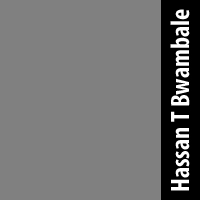

From the Islamic perspective, according to Al-Imam Al-Menawi, laziness means inadvertence, negligence and carelessness in doing things that are imperative where activeness is mandatory. This kind of negligence is dispraised and disparaged. (Al-Tawfeeq 281) Al-Imam Al-Raghib said, "Whoever gets accustomed to being lazy and indolent and decides to lean towards luxury and rest most of the time, will eventually lose that rest and luxury as a consequence, and will pay a high price."
For example, if someone does a sedentary work where he rarely moves, time will come when he will contract some preventable diseases as a result of his inactivity, which will cost him money, effort and time.
Laziness is divided into two categories: First, sluggishness of the mind in that you don't use it in critical thinking, pondering, and looking at the blessings and bounties of Allah Almighty, on one hand, and abandoning the consideration of and seeking things that may benefit you in this temporal life, on the other hand. Since everything was created for us (Al-Quran 2: 29), it behooves us to learn how to tap into the resources that Allah (SWT) created for us and benefit from them categorically and effectively, all the while keeping them safe for generations to come.
Second, physical inactivity: This entails carelessness and lassitude in performing physical exercise. This vice leads communities and individuals into backwardness. If you neglect your body in that you are so lazy to work out, you will face the consequences. Due to the fact that there is a correlation between the body and the mind, when the body feels pain, it affects the mind - thus the level of concentration dwindles.
Prophet Muhammad (PBUH) discouraged laziness: Ibn Abbas (RA) narrated that the Prophet (PBUH) said, "I mobilized a neighborhood of Arabs to carry out a mission related to protecting Islam, and they slackened in their response. Allah (SWT) withheld rain from them as a punishment (for being lazy.)" (Al-Hakim rated it as Saheeh (authentic) in Al-Mustadrak 2/118. See also As-Silsilah As-Saheeha 6/129.)
Prophet Muhammad (PBUH) would always seek refuge in Allah (SWT) from faults and deficiencies, including laziness. Zaid bin Arqam narrated that Prophet Muhammad (PBUH) used to supplicate saying, "O Allah, I seek refuge in You from inability, laziness, cowardice, miserliness, senility, and the punishment of the grave…." (Muslim 2,722). If Prophet Muhammad (PBUH) would seek refuge in Allah (SWT) from laziness, this means it is a terrible vice that we ought to distance ourselves from after asking Allah (SWT) to keep us away from it.
If you choose to be lazy, you will pay the price sooner rather than later. Malik bin Nadhlah (RA) narrated that Prophet Muhammad (PBUH) said, "There are three categories of hands; the highest of which is Allah' hand, followed by the hand that gives (frequently without fear of poverty) and the lowest being the hand of the beggar. Therefore make sure you give from your surplus and don't be stingy on yourself." (Collected by Imam Abu Dawud 1, 649 and its chain of narrators is strong.)
We construe from the hadeeth (prophetic narration) above that you can't give if you don't earn. So this a clear admonition to abandon laziness and adopt proactivity so that you can earn, so that you can share with others, for which you will reap abundant rewards from Allah (SWT).
The devil ties knots on the lazy people. Abu Huraira (RA) narrated that Prophet Muhammad (PBUH) said, "The devil ties three knots at the forelock of one of you when he sleeps. By each knot, he encourages you to have a deep sleep during the night, which seems to be very long. So when one wakes up and remembers Allah (SWT), mentions Him and celebrates His praises, one knot gets untied.
When he goes to perform Wudu (ablutions), another knot unties, and when he prays Salat Al-Fajr (the dawn prayer), the third knot is untied. Therefore, the person would wake up active, enjoying a good mood and being characterized as good-hearted. However, if he doesn't do as instructed, he would wake up dejected, melancholic, malicious, apathetic and appearing sly." (Al-Bukhari 3/1,142 and Muslim 776)
Finally, we should understand that Allah (SWT) is our creator; He knows very well what is good for us and what is bad for us. Being active in obliging to the commandments of Allah as well as working hard to fulfill our mundane duties and needs that do not contradict with the Allah's admonitions will benefit us in this world and in the Hereafter. So, let's be active during this auspicious month of Ramadan and explore every avenue that will bring us Allah's pleasure.
Courtesy of the TIES Center: the TIES Center aims at empower Kuwait's expats through social and educational services that promote a positive and productive role in society, and to facilitate opportunities for intra- and interfaith interactions that promote social solidarity. For more information, please call 25231015/6 or e-mail: [email protected].
By Hassan Twaha Bwambale



